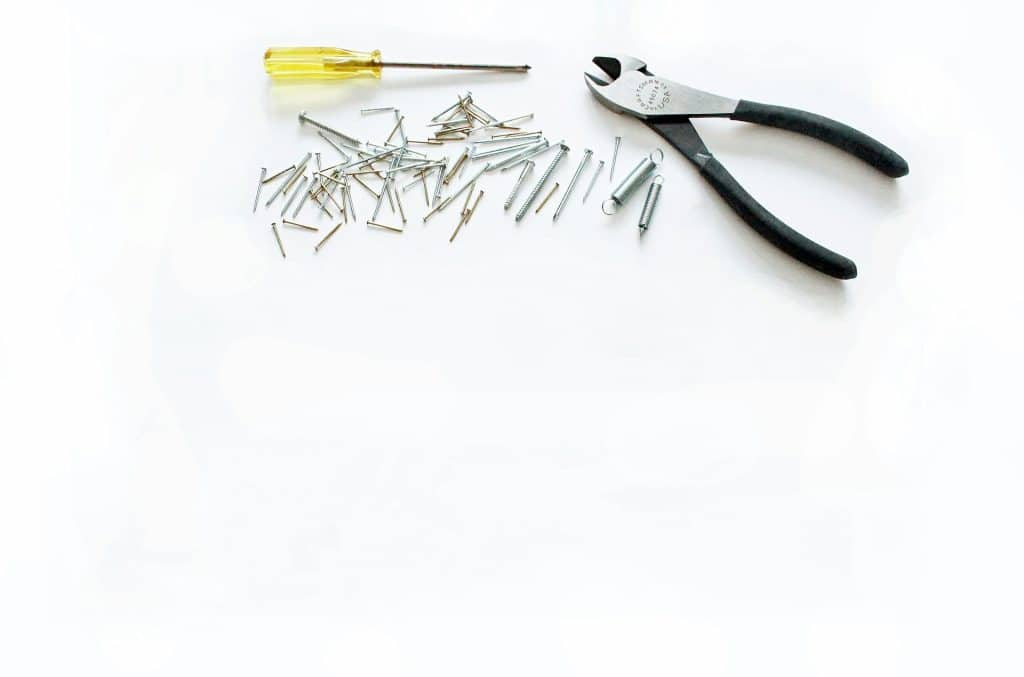When it comes to securing metal objects to concrete or masonry surfaces, screw anchor metal is the go-to solution. These fasteners are designed to provide a strong and reliable hold, ensuring that your metal objects stay in place. Whether you’re installing a fence post, mounting a sign, or securing an HVAC system, screw anchor metal is an excellent choice.
At Fastening Specialists, we’ve been providing high-quality fastening solutions for over 65 years. As a trusted wholesale distributor, we specialize in providing our customers with the best possible products and services. Our selection of screw anchor metal includes a wide range of sizes and styles, making it easy to find the perfect fastener for your needs. Plus, our team of experts is always available to provide advice and guidance on installation and usage.
When it comes to securing metal to concrete or masonry, screw anchor metal is the way to go. With our extensive selection and expert guidance, Fastening Specialists is the best choice for all your fastening needs. Remember to always check with local building codes and engineers for correct usage instructions.
Types of Metal Screw Anchors
When it comes to fastening metal objects, screw anchors are a reliable and efficient option. There are several types of metal screw anchors available, each with its own unique features and benefits. Here are some of the most common types of metal screw anchors:
Expansion Anchors
Expansion anchors are a popular choice for fastening metal objects to concrete or masonry surfaces. They work by expanding as the screw is tightened, creating a secure hold. These anchors are available in various materials, including steel and stainless steel, making them suitable for use in harsh environments.
Toggle Bolts
Toggle bolts are another type of metal screw anchor that is commonly used to fasten objects to drywall or other hollow surfaces. These anchors work by spreading out behind the surface, creating a strong hold. They are available in various sizes and materials, including stainless steel, making them suitable for use in a range of applications.
Sleeve Anchors
Sleeve anchors are a type of expansion anchor that is designed for use in solid materials such as concrete or brick. They work by expanding as the screw is tightened, creating a secure hold. These anchors are available in various materials, including steel and stainless steel, making them suitable for use in harsh environments.
Chemical Anchors
Chemical anchors are a type of anchor that is used to fasten objects to concrete or masonry surfaces. They work by using a chemical adhesive to create a strong bond between the anchor and the surface. These anchors are available in various materials, including steel and stainless steel, making them suitable for use in harsh environments.
As a trusted wholesale distributor for over 65 years, Fastening Specialists is the best option for all your fastening needs. With so many sizes, applications, features, designs, materials, coatings, and SKU names, we know that fastenings can be overwhelming. Serving a long list of industries, you can trust THE specialists for the best in product value, insight, code expertise, and order fulfillment. The expert gives you so much more value.
The team at Fastening Specialists provides advice and best use-cases, but always check with local building codes and engineers for correct usage instructions.
Design and Material Considerations
When it comes to designing screw anchor metal, there are several factors to consider. These include the metal composition, corrosion resistance, and anchor strength. In this section, we’ll explore each of these factors in detail.
Metal Composition
The type of metal used in screw anchors can have a significant impact on their performance. Stainless steel is a popular choice due to its strength and corrosion resistance. It is often used in applications where the anchor will be exposed to harsh environments, such as marine or industrial settings. However, other metals such as zinc or plastic are also used in certain applications.
Corrosion Resistance
Corrosion is a major concern for screw anchor metal. Over time, exposure to moisture and other elements can cause the metal to corrode, compromising its strength and durability. To combat this, screw anchors are often coated with a layer of corrosion-resistant material. Stainless steel is naturally resistant to corrosion, but other metals may require a coating to provide adequate protection.
Anchor Strength
The strength of a screw anchor is critical to its performance. The anchor must be able to withstand the load it is designed to support without failing. The strength of the anchor is influenced by several factors, including the diameter of the anchor, the length of the anchor, and the material used.
At Fastening Specialists, we understand the importance of selecting the right screw anchor for your application. As a trusted wholesale distributor for over 65 years, we are specialists in this field. With a wide range of sizes, materials, and coatings to choose from, we can help you find the perfect anchor for your project. Our team of experts is always available to provide advice and best use-cases, but always check with local building codes and engineers for correct usage instructions.
Remember, when it comes to screw anchor metal, selecting the right material and design is critical to ensuring the safety and durability of your project. Trust the experts at Fastening Specialists to provide you with the best in product value, insight, code expertise, and order fulfillment.
Installation Techniques
When it comes to installing screw anchor metal, there are a few techniques you can use to ensure a successful installation. In this section, we will cover the three main installation techniques: pre-drilled holes, setting tools, and load distribution.
Pre-Drilled Holes
Pre-drilling a hole before installing a screw anchor metal can be beneficial in ensuring that the anchor is installed properly. This technique is especially useful when working with harder materials like concrete or steel. When pre-drilling, make sure to use the correct size drill bit for the anchor being used. This will help to prevent the anchor from spinning or becoming loose during installation.
Setting Tools
Setting tools can be used to help set the screw anchor metal in place and ensure a secure installation. Impact wrenches are a popular choice for setting tools as they can help to apply the necessary torque for proper installation. When using an impact wrench, be sure to use a low installation torque to avoid damaging the anchor or the material being anchored.
Load Distribution
Load distribution is an important consideration when installing screw anchor metal. To ensure a secure installation, it is important to distribute the load evenly across the anchor. This can be achieved by using a washer or other load distribution device. This will help to prevent the anchor from becoming loose or failing over time.
Fastening Specialists is a trusted wholesale distributor of fastenings with over 65 years of experience in the field. We are specialists in this area and can provide you with expert advice and the best products for your needs. With our extensive range of sizes, applications, features, designs, materials, coatings, and SKU names, we can help you find the perfect fastening for your project.
Remember to always check with local building codes and engineers for correct usage instructions. The team at Fastening Specialists provides advice and best use-cases, but it is important to ensure that you are using the correct installation techniques for your specific application.
Screw Anchor Applications
When it comes to fastening fixtures to various surfaces, screw anchors are an excellent choice. They offer reliable and secure attachment points for a wide variety of applications. In this section, we will explore some of the most common screw anchor applications.
Masonry and Concrete Fixing
Screw anchors are perfect for fixing heavy-duty fixtures to concrete and masonry surfaces. These anchors are designed to create a solid grip with the surface by digging into the material. They can be used to attach electrical boxes, conduits, and other fixtures to concrete or masonry walls. At Fastening Specialists, we offer a wide range of screw anchors that are tested and evaluated in accordance with ACI 355.2 and ICC-ES AC193 for concrete (cracked and uncracked) and ICC-ES AC106 for masonry (hollow and solid).
Drywall and Hollow Wall Applications
Screw anchors are also ideal for fixing fixtures to drywall and hollow walls. They provide a stable attachment point for items such as mirrors, shelves, or artwork. At Fastening Specialists, we offer a range of screw anchors that are designed specifically for use with drywall and hollow walls. These anchors are easy to install and provide a secure grip that prevents loosening over time.
Heavy Duty Fixtures
For heavy-duty fixtures that require a secure attachment point, screw anchors are an excellent choice. They can be used to attach steel beams or metal frames for items such as brackets, conduits, electrical components, and fixtures. At Fastening Specialists, we offer a range of screw anchors that are made from high-quality materials and designed to provide maximum holding power.
The team at Fastening Specialists has been a trusted wholesale distributor of fastenings for over 65 years. We are specialists in this field, and our expertise is unmatched. With a wide range of products and a team of experts who can provide advice and best use-cases, you can trust us for the best in product value, insight, code expertise, and order fulfillment. Remember to always check with local building codes and engineers for correct usage instructions.
At Fastening Specialists, we are committed to providing our customers with the best possible service and support. Contact us today to learn more about our products and services.
Sizing and Compatibility
When it comes to screw anchor metal, selecting the right size and compatibility is crucial for a secure and long-lasting installation. In this section, we will cover the key factors to consider when sizing and selecting screw anchors for your project.
Anchor and Screw Diameter
The first consideration when selecting screw anchors is the diameter of the anchor and screw. The anchor diameter should match the size of the hole you drill into the base material, while the screw diameter should match the diameter of the anchor. It is important to choose an anchor and screw with the same diameter to ensure a tight fit and prevent the anchor from slipping or spinning.
Thread and Tolerance Matching
Thread and tolerance matching is another important consideration when selecting screw anchors. The threads on the anchor should match the threads on the screw to ensure a secure fit. In addition, the tolerance of the anchor and screw should be compatible to ensure a snug fit without any gaps or looseness.
Length and Embedment Depth
The length and embedment depth of the screw anchor are also important factors to consider. The length of the anchor should be long enough to penetrate the base material and provide sufficient support for the load. The embedment depth refers to the depth at which the anchor is inserted into the base material. It is important to choose an anchor with an appropriate embedment depth to ensure a secure fit and prevent the anchor from pulling out.
Fastening Specialists is a trusted wholesale distributor of screw anchors and other fastening products, with over 65 years of experience in the industry. As specialists in this field, we offer a wide range of sizes, applications, features, designs, materials, coatings, and SKU names to meet your specific needs. Our team of experts can provide valuable insight and code expertise to ensure you select the right screw anchors for your project.
Remember to always check with local building codes and engineers for correct usage instructions. The team at Fastening Specialists provides advice and best use-cases to help you make informed decisions about your fastening needs.

